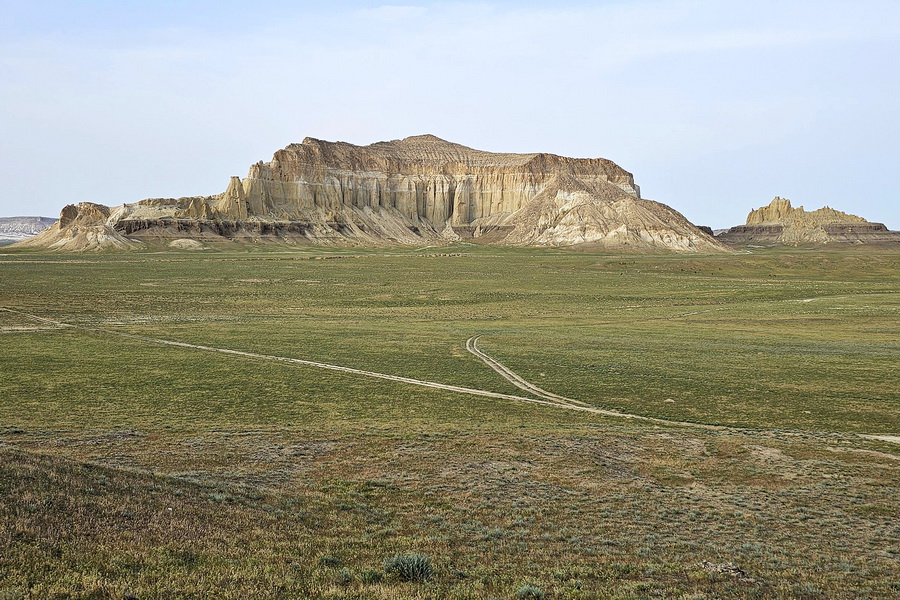
The Airakty stand as a group of stunning mountains with sharp cliffs and unusual crevices that look almost handcrafted, yet are the remarkable results of water, wind, and time. Each mountain appears as a formidable fortress, their edges resembling towers, earning them the moniker “Valley of Castles”. This evocative name was coined by Taras Shevchenko, a Ukrainian writer and poet, who found himself exiled in Mangystau during the mid-19th century and also created the first drawings of these mountains.
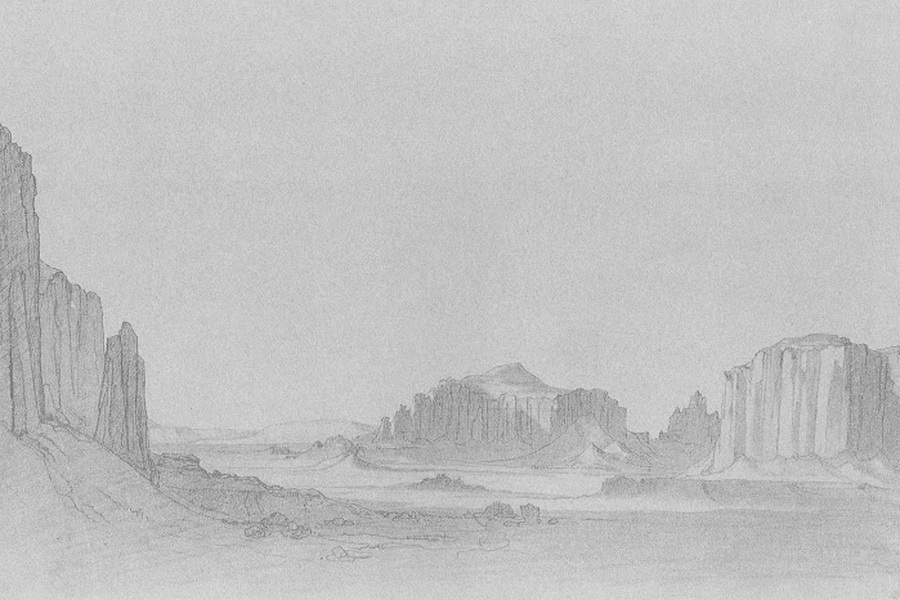 Drawing by Taras Shevchenko, 1851
Drawing by Taras Shevchenko, 1851
Formed from limestone, the Airakty Mountains were part of the ancient Tethys Ocean seabed around 40 million years ago. Tectonic activity eventually elevated the land, the waters receded, and over time, natural forces began sculpting the rock layers into their current forms. The mountains have undergone dramatic transformations due to rainfall and persistent winds, carving out the incredible reliefs we see on their sheer walls today. Although they are already millions of years old, the erosion continues; in a thousand years, their shapes will have changed, and in a million years, they might be gone altogether.
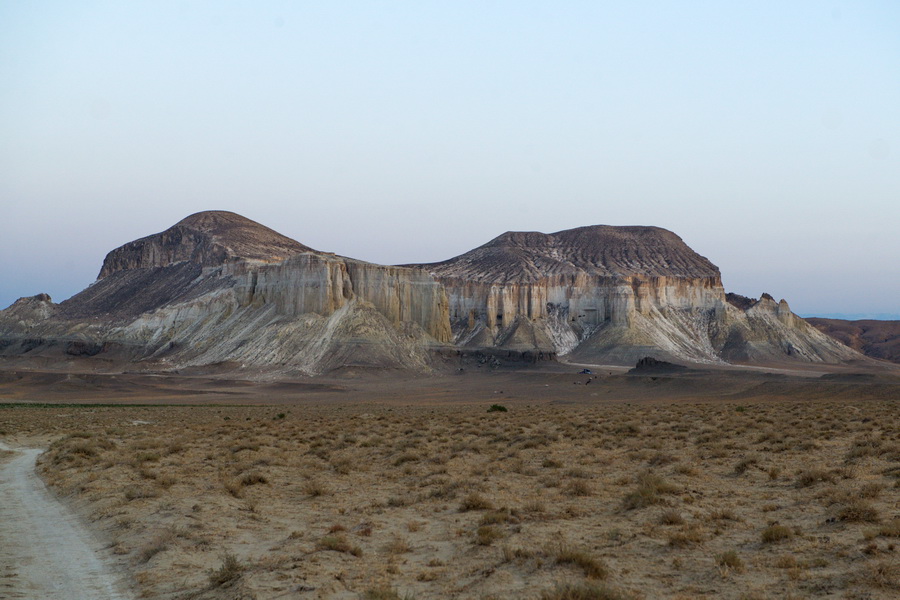
The history of the Airakty tract is relatively unremarkable. Here, petroglyphs dating back just a few hundred years were discovered, left by local shepherds and mouflon hunters (a species of wild sheep). The place is sometimes referred to as Zhairakty or Shomanai by locals. Taras Shevchenko visited in 1851, later documenting it in his travel notes.
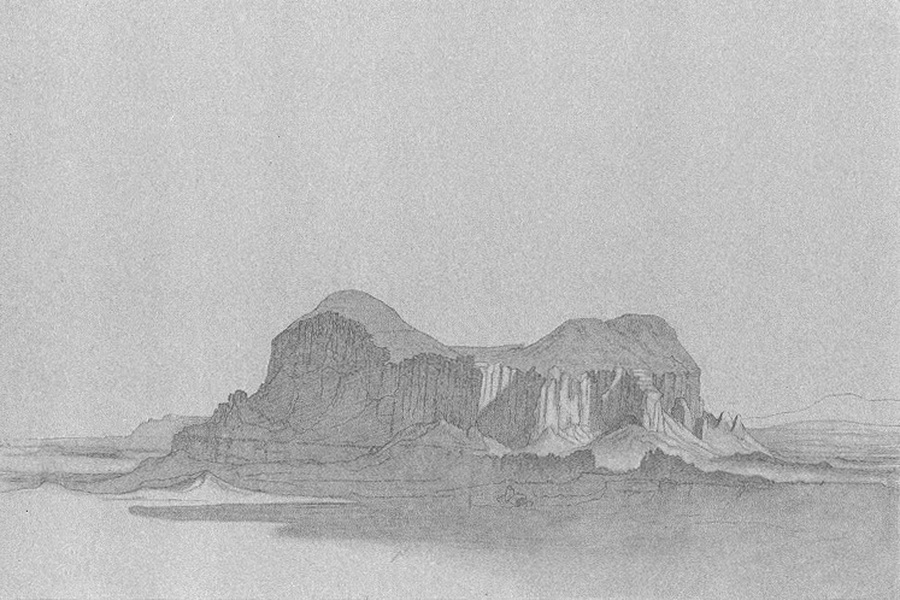 Drawing by Taras Shevchenko, 1851
Drawing by Taras Shevchenko, 1851
In the early 21st century, archaeologist Andrei Astafiev sought to draw attention to the tract by creating a gallery of geoglyphs; using a tractor, he etched massive drawings into the steppe between the mountains, visible only from above or via satellite imagery. The 150-meter-long "palm" is a prime example, inspired by a similar design in the Shakpak-ata mosque.
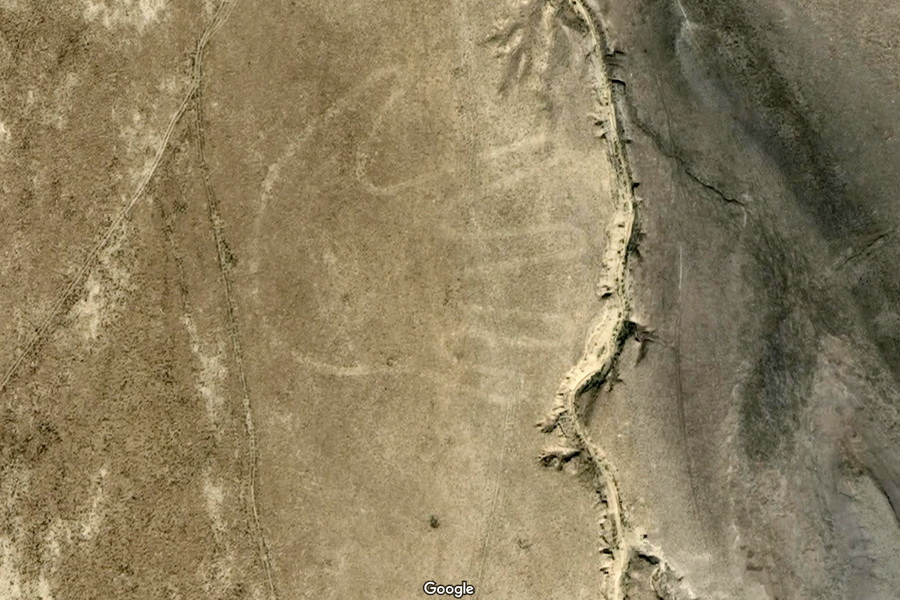
There’s a prevailing theory that merchant caravans traveling the Great Silk Road once passed through Ayrakty, with legends even suggesting buried treasures in the area. Today, amateur archaeologists and treasure hunters, armed with metal detectors, sometimes visit, hoping for a lucky find. Some have even unearthed ancient coins.
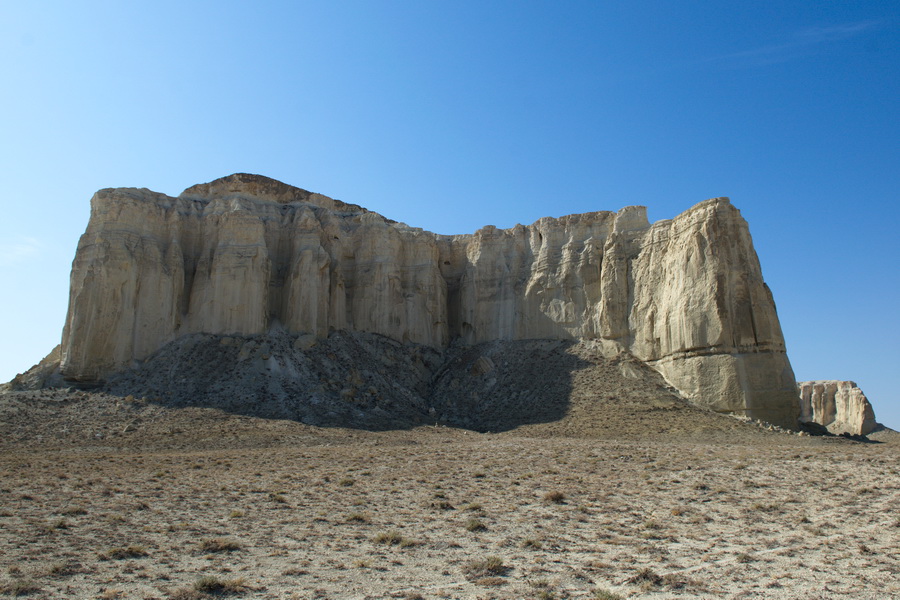
However, the true allure of the Airakty tract lies in its natural beauty, the main treasure of this extraordinary place. Springtime is particularly breathtaking when the valley blooms in lush greenery and flowers, including the Sogdian tulips. Wild horses and mouflons are known to graze in the valley, while turtles and various small steppe creatures can be found at the foot of the mountains. Scorpions are rare, but visitors should still practice basic safety precautions, such as securing tents with nets and checking shoes for unwelcome guests.
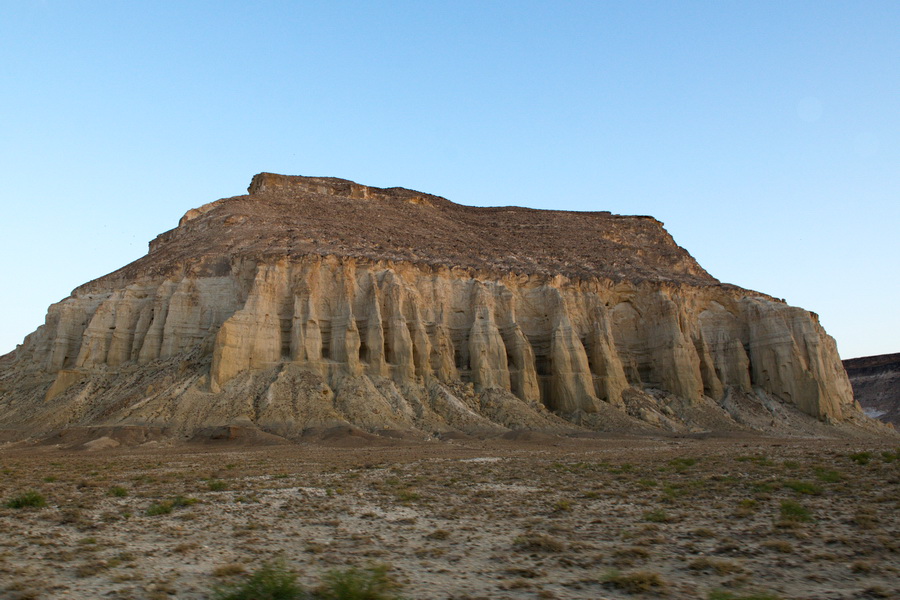
Spring and early fall offer the most pleasant times to visit, with summer temperatures often soaring above 40 degrees Celsius, and winter bringing cold, windy conditions.
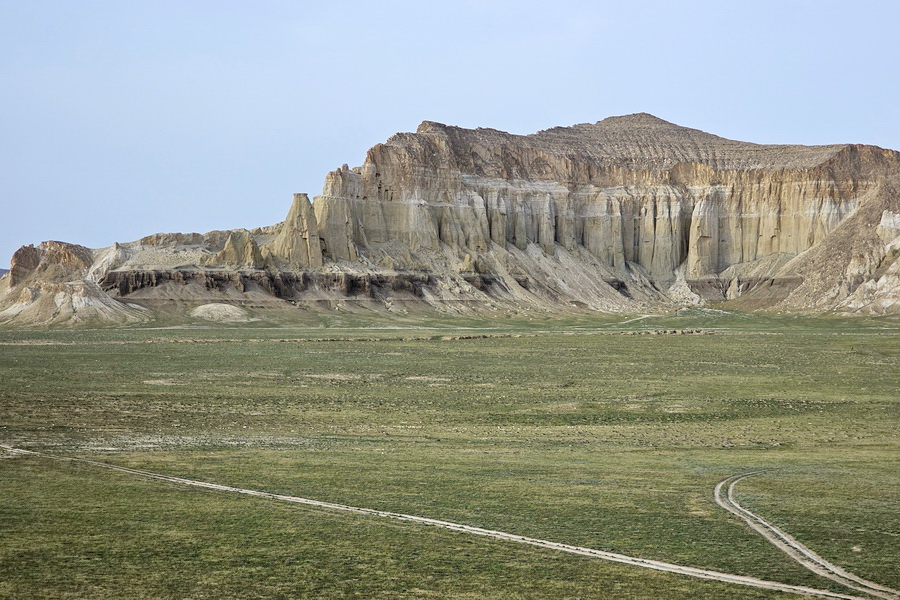
Located about 100 km northeast of Aktau, or 180 km by road, the Airakty tract can be explored as part of two-day tour, though its captivating scenery and interesting rock formations might tempt you to linger for hours, especially during the evening's golden hour.
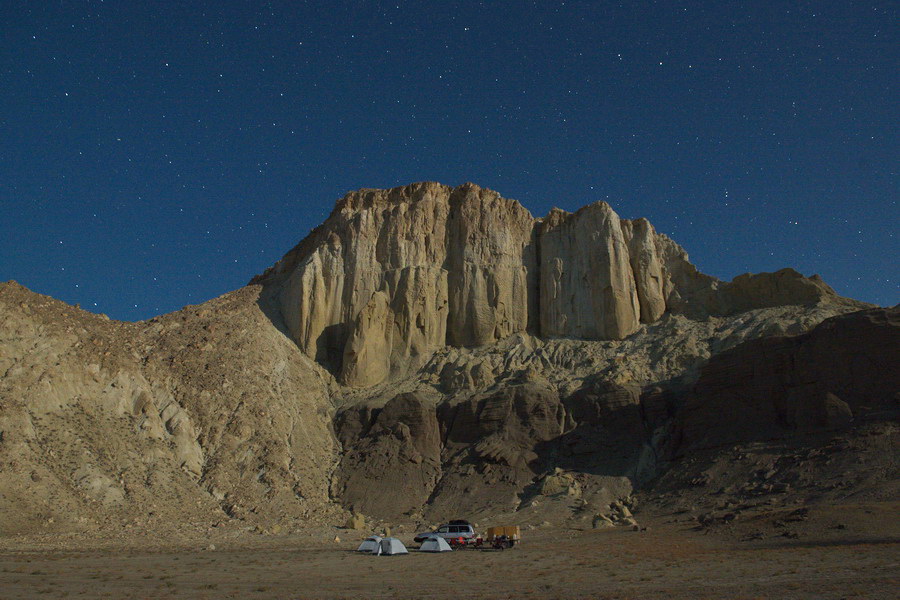
For those looking to extend their stay, consider a travel program in Mangystau that includes an overnight stay near one of the tract’s “castles.” If you prefer a bit of comfort, the ethno-aul Kogez, located 10 km to the southwest, offers air-conditioned yurts, a shower room, a swimming pool, and a restaurant.

